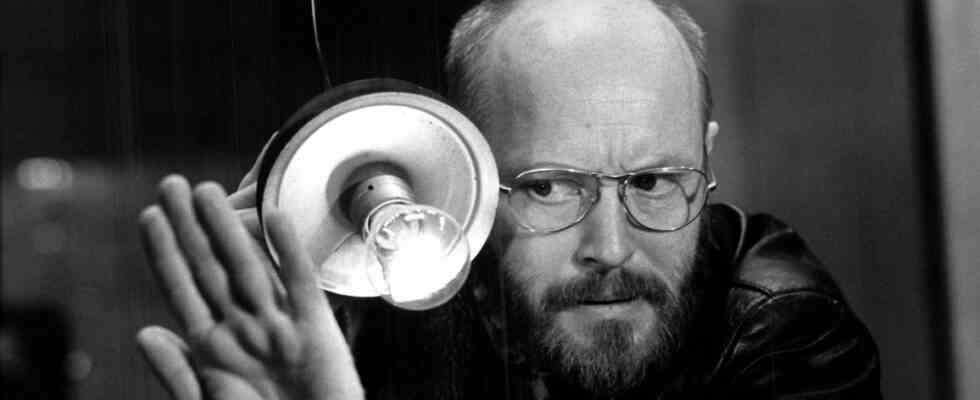He embodied a few great people in world history, for example the old Jakob Fugger, in the TV series “From Loom to World Power”, or Émile Zola, in a film about the Dreyfus Affair, “…nevertheless!” by Karl Fruchtmann. Nevertheless, he was basically more of a man for the unspectacular, for a bourgeois attitude that was sometimes oppressive, sometimes sad, sometimes impulsive. With a agility and elegance that could always find new expression in countless roles, both classic and modern, especially in the theater.
Ernst Jacobi was born on July 11, 1933. Even as a teenager he took on speaking roles at RIAS, and in the fifties he took acting lessons. He played on all major German-speaking stages, at the Schiller Theater in Berlin, at the Munich Kammerspiele, at the Vienna Burgtheater, at the Zurich Schauspielhaus.
Ernst Jacobi had the most intensive cinema role in “Germany Pale Mother”.
He got involved with television very early on, when in the early 1950s in Germany people were still trying out and experimenting with what could actually be done with the new medium. One of his most important roles was Alexander März in Heinar Kippphardt’s “Life of the Schizophrenic Poet Alexander March”, about poetry as a therapeutic activity. He received the Berlin Art Prize for it from the Academy of Arts.
In the cinema Jacobi played in “On the day when the rain came”, 1959, by Gerd Oswald, in Helmut Käutner’s slider story “Schwarzer Kies”, 1961, the Gauleiter in Volker Schlöndorff’s Grass film “The Tin Drum”. He then made it a little further down the Nazi hierarchy in Jan Troell’s film “Hamsun”, where Jacobi played Hitler, alongside Max von Sydow as Hamsun – a leader who feels close to the artists and also in conversation with the Norwegian author wants to show.
Ernst Jacobi had the most intensive cinema role in “Deutschland bleiche Mutter”, 1980, by Helma Sanders-Brahms. He is Hans, the lover and then husband of Lene, who plays Eva Mattes. Hans has to go to war in 1939, and when he returns years later, he has to realize that not only are the cities in ruins, but also the system of social roles. It’s over with the happily hopping little Hans, to the sounds of a children’s song
Most people are probably familiar with his calm voice, he has spoken in countless radio plays and audio books. He is the narrator in Michael Haneke’s “The White Ribbon”, the teacher who remembers the time before the First World War, the parents’ harsh regime over their children – and how they rebel just as cruelly against it. According to his management, Ernst Jacobi died on Thursday in Vienna at the age of 88.

